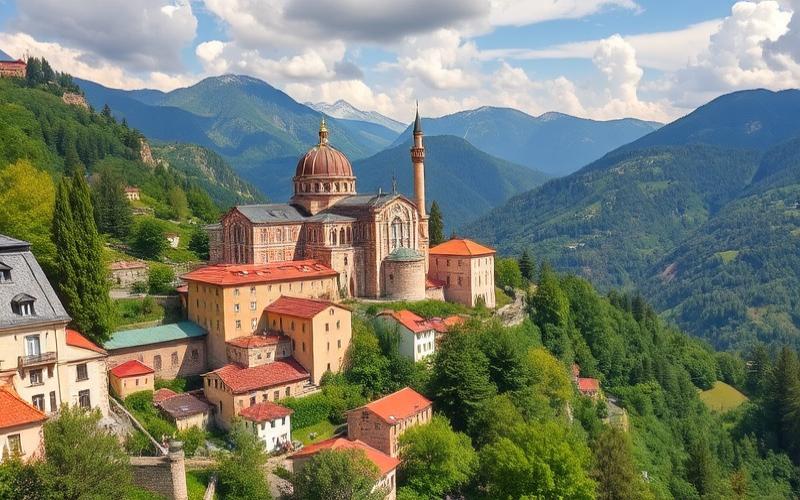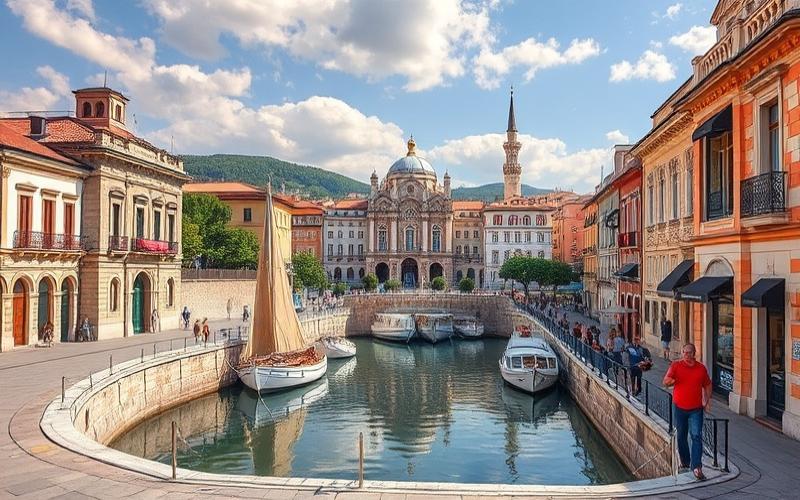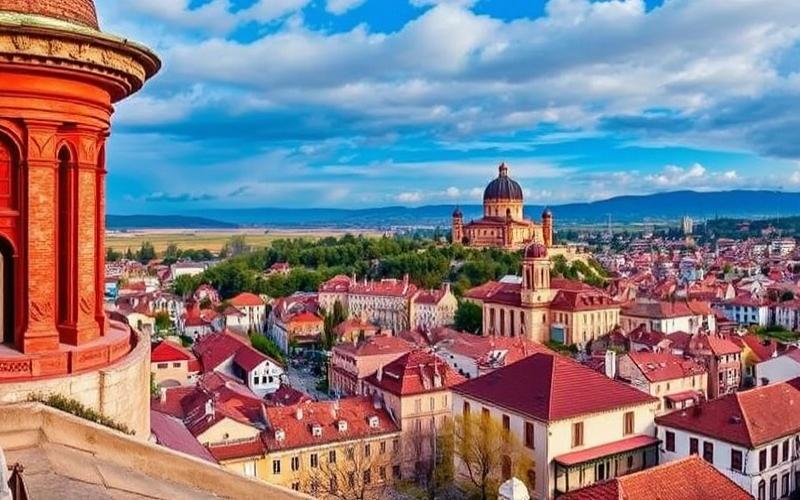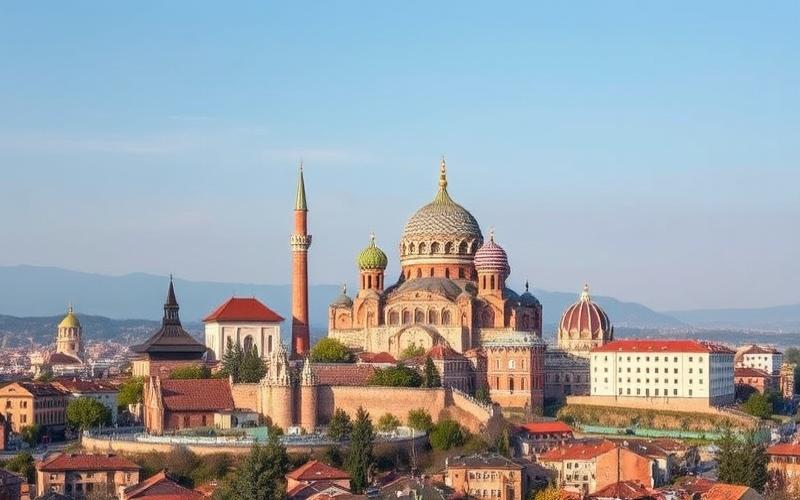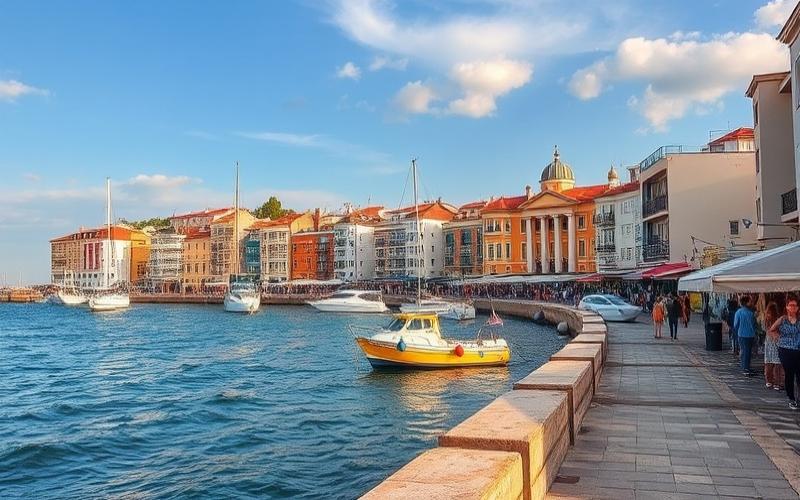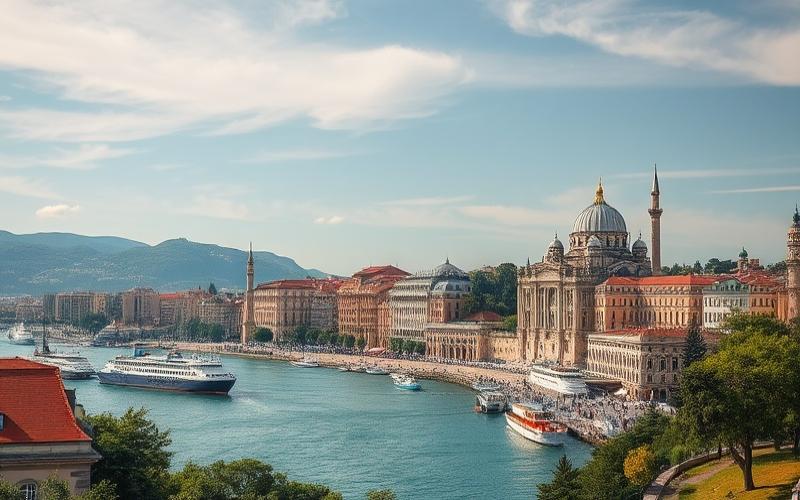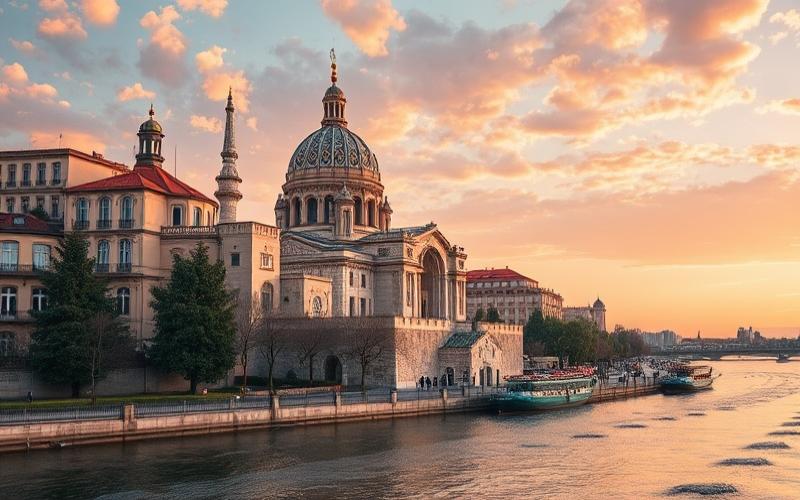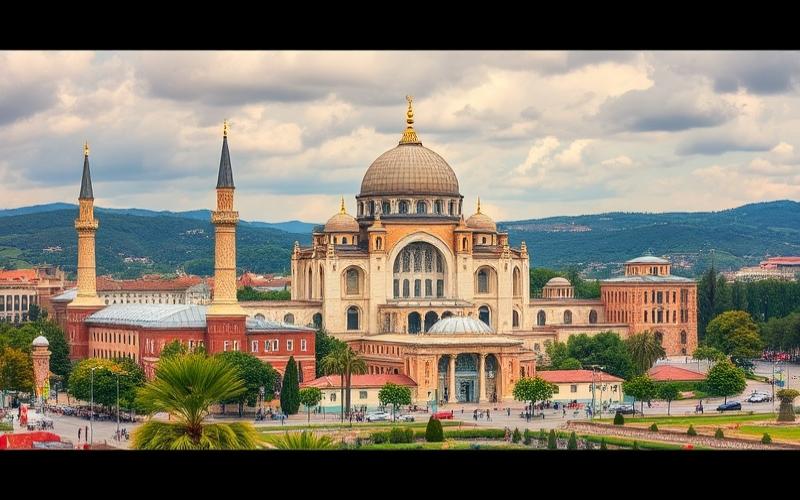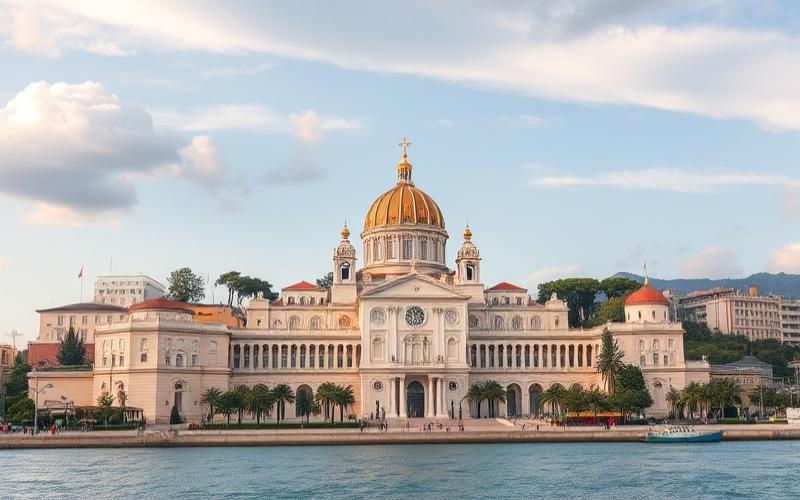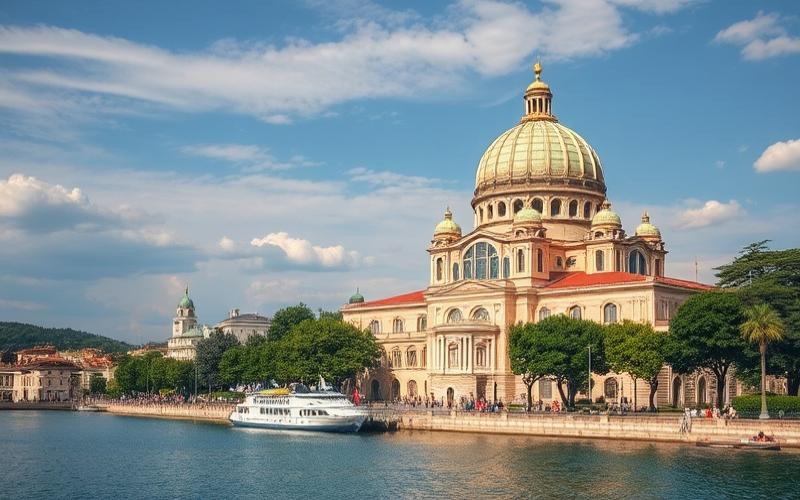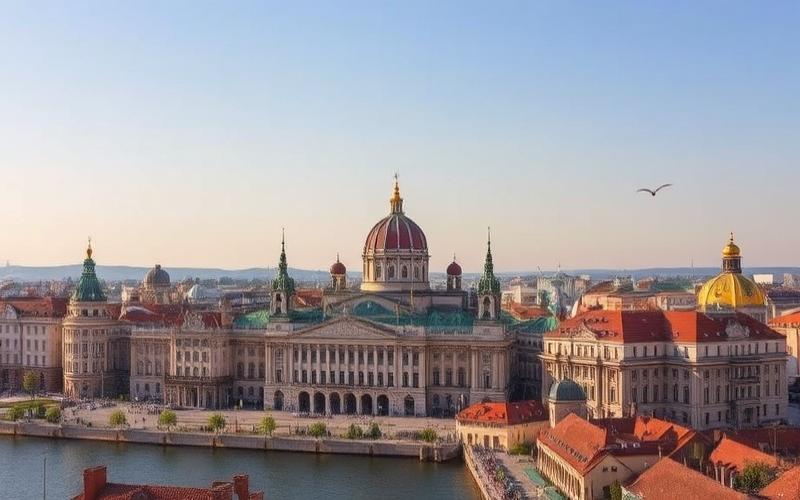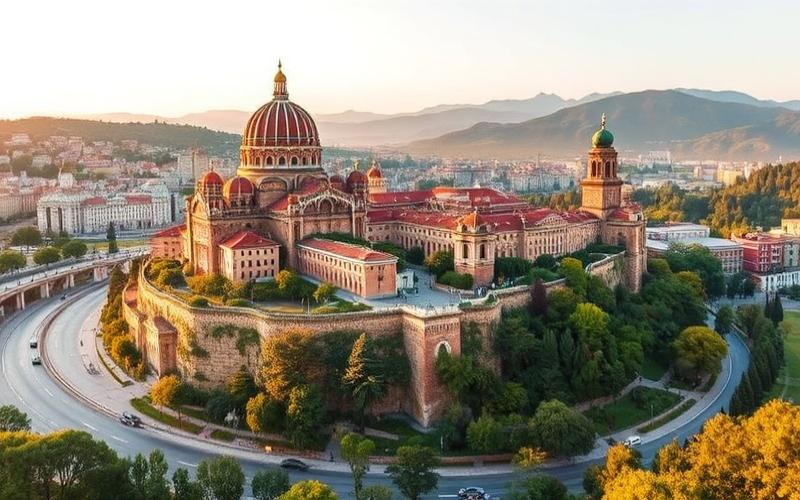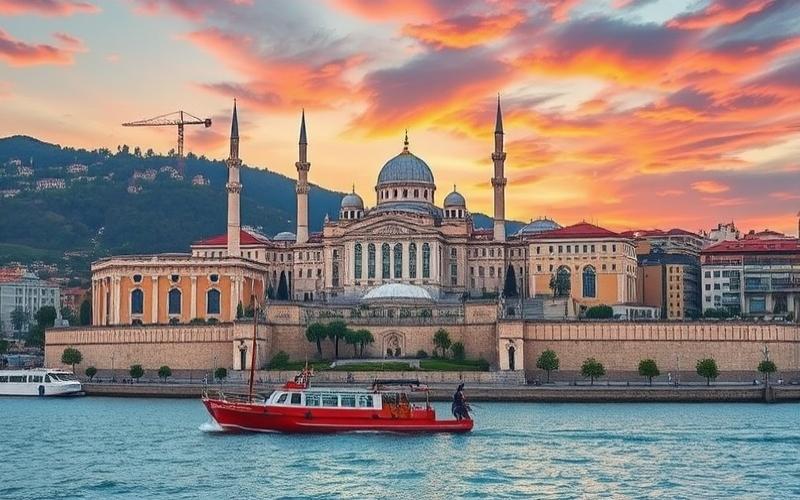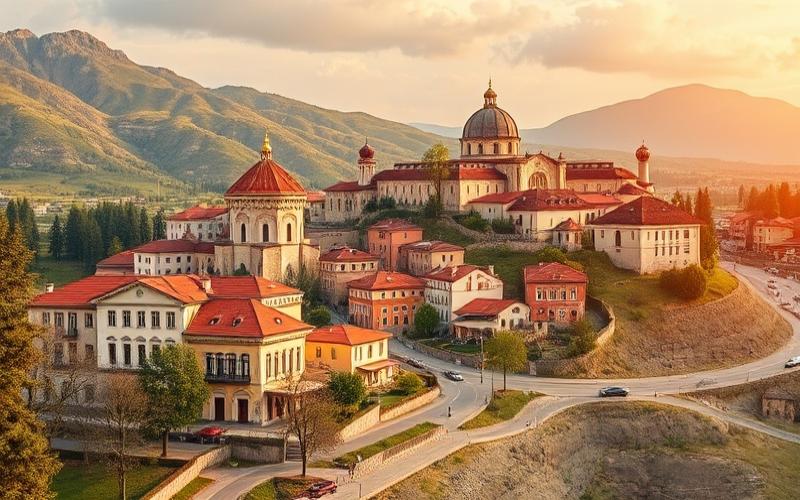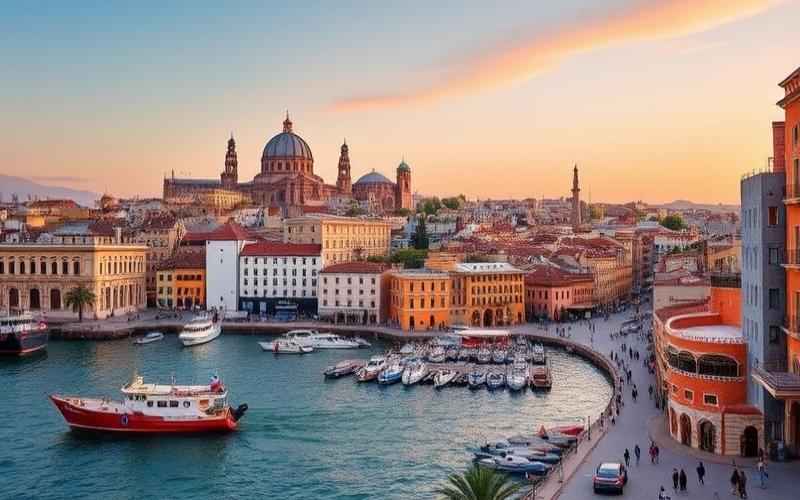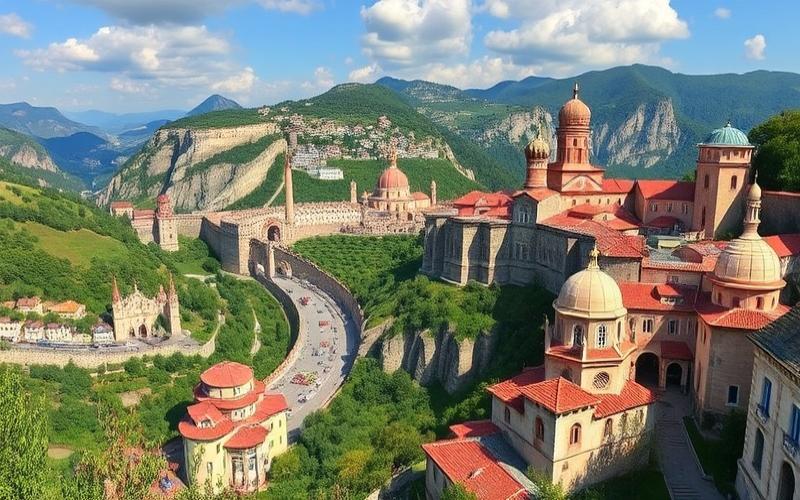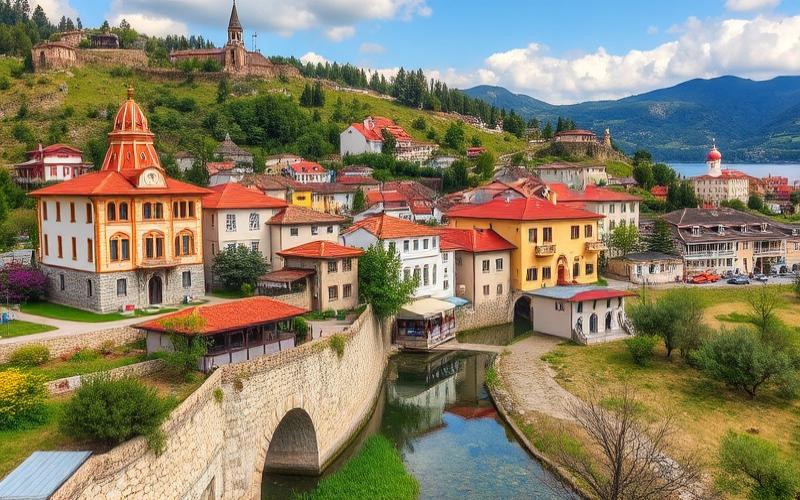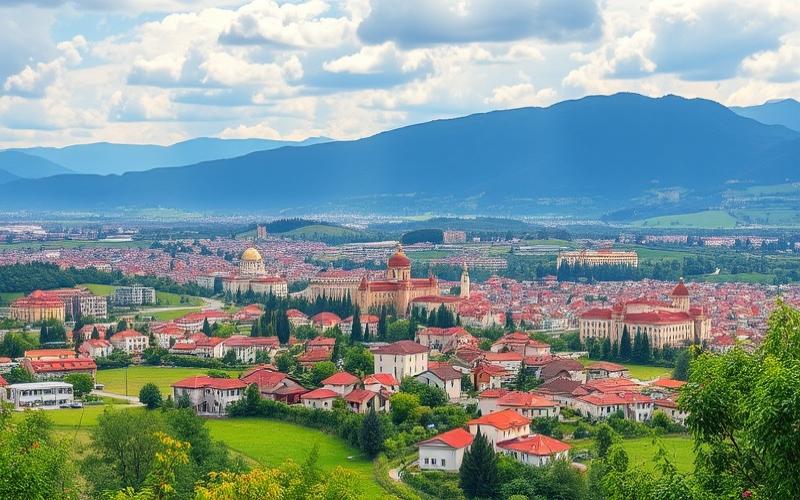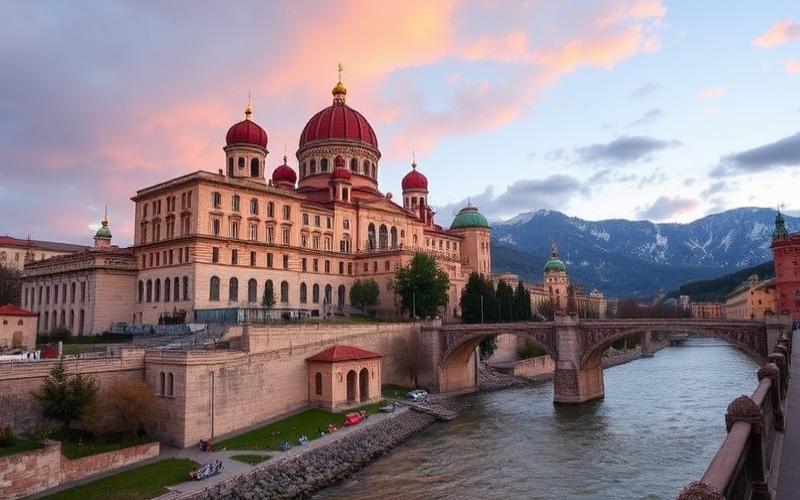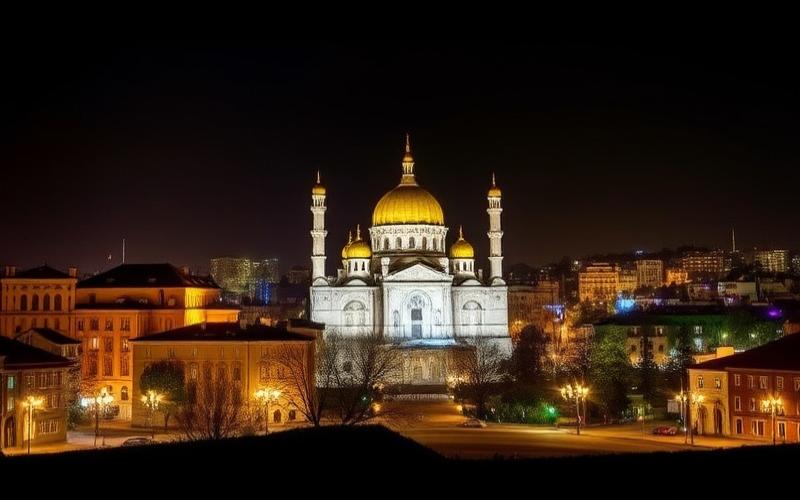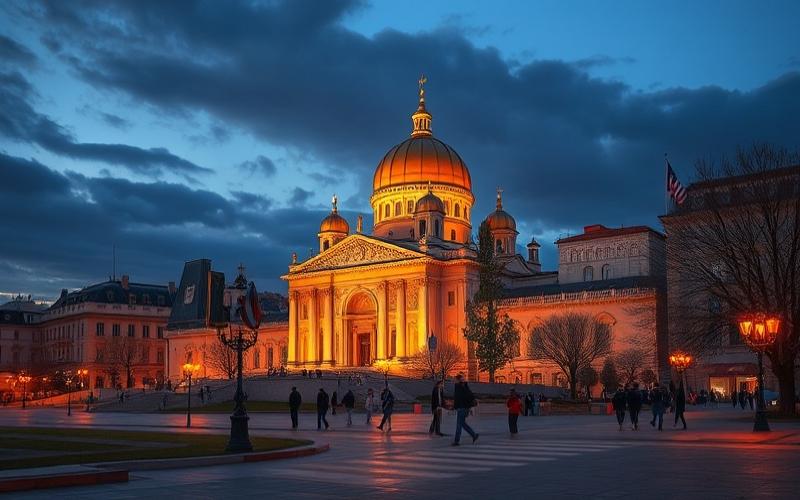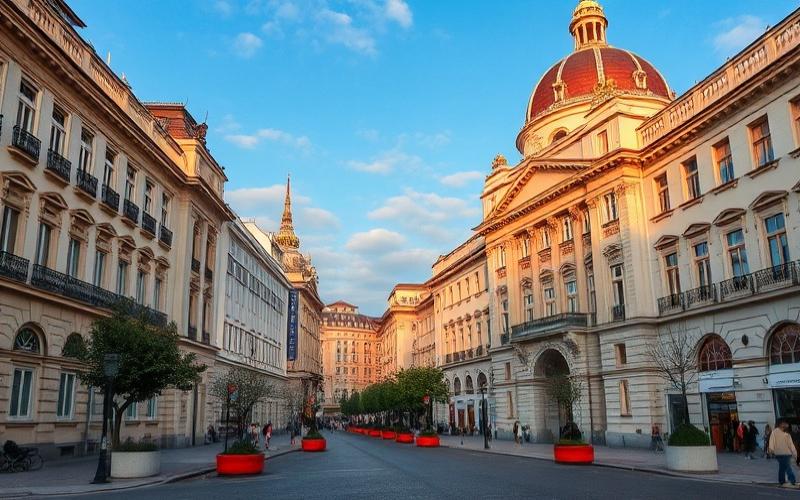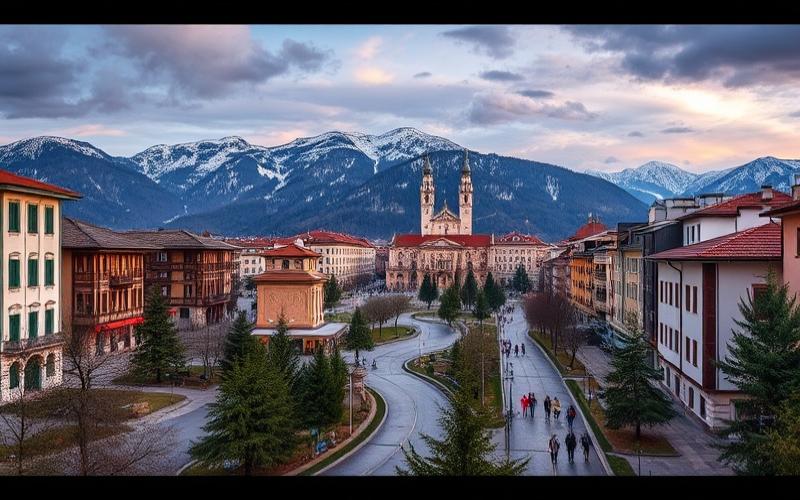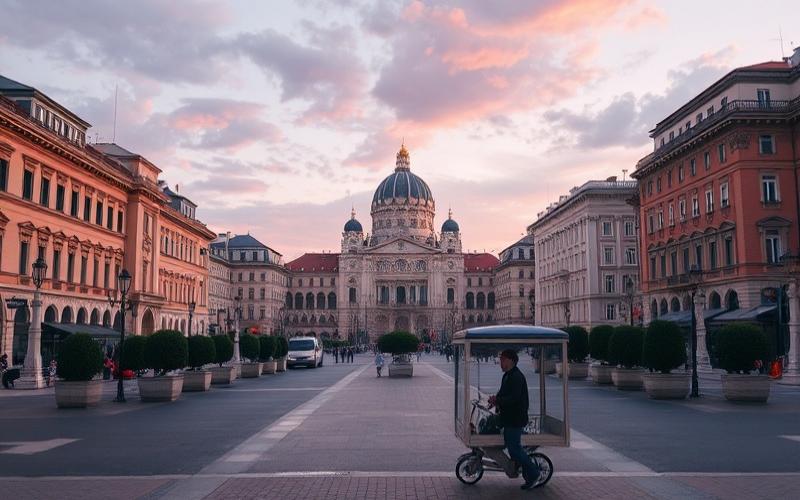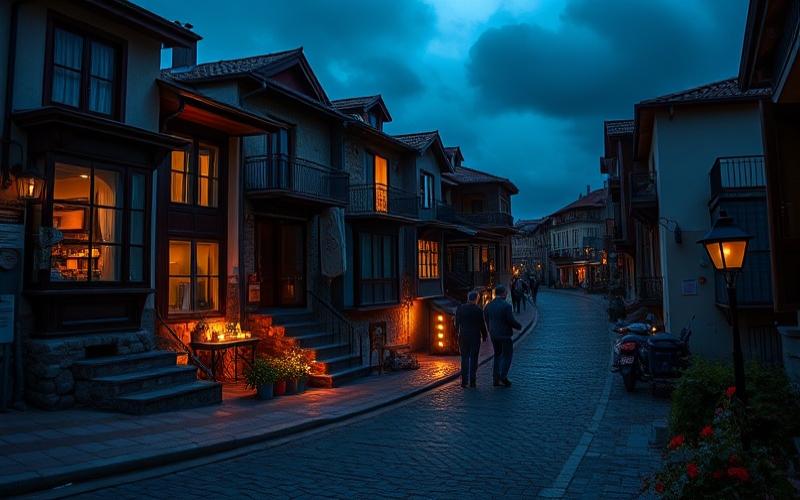
 Published on and written by Cyril Jarnias
Published on and written by Cyril Jarnias
As Bulgaria continues to attract real estate investors, a new phenomenon is drawing attention: dark stores. These discreet urban warehouses, designed to meet growing demand for rapid deliveries, are not only transforming the commercial landscape but also reshaping the real estate dynamics of major Bulgarian cities. Indeed, their proliferation presents new challenges and opportunities for market players, ranging from profitability-focused investors to regulators seeking to preserve urban balance. The emergence of these structures raises questions about the future of the real estate sector as Bulgaria adapts to an increasingly digitalized world.
Emergence of Dark Stores in Sofia
The Rise of Dark Stores in Sofia: A Silent Commercial Revolution
Sofia, the Bulgarian capital, is experiencing a rapid transformation of its commercial landscape with the emergence of dark stores. These urban warehouses, dedicated exclusively to online commerce, are redefining how Sofia residents shop. The advent of these discreet logistics spaces marks a turning point in the evolution of the city’s retail sector.
The rise of dark stores in Sofia is part of a broader trend of commerce digitization in Bulgaria. The Bulgarian e-commerce market has experienced explosive growth, rising from $664 million in 2016 to a projected $1.5 billion in 2025. This rapid expansion has created fertile ground for the establishment of dark stores in the capital.
Factors Driving Dark Store Development in Sofia
Several elements have contributed to the rise of dark stores in the Bulgarian capital:
- Sofia’s high urban density, which facilitates rapid deliveries
- Increased demand for ultra-fast deliveries, particularly in the food sector
- Availability of vacant commercial spaces as a consequence of the pandemic
- Investor appeal for this promising new business model
These combined factors have created an environment conducive to the establishment and multiplication of dark stores throughout the city.
Impact on Urban Landscape and Local Reactions
The appearance of dark stores in Sofia has not gone unnoticed. While some welcome the innovation and convenience they bring, others worry about their impact on the urban fabric. Sofia’s local authorities have begun examining this phenomenon more closely, considering regulations to guide their development.
The conversion of traditional commercial premises into dark stores raises questions about the future of Sofia’s shopping districts. Some residents fear a loss of urban vitality, while others appreciate the reduction in car traffic related to shopping trips.
Influence on Sofia’s Real Estate Market
The rise of dark stores has had a notable impact on Sofia’s commercial real estate market. There’s been an increase in demand for well-located urban storage spaces, leading to rising rents in certain strategic neighborhoods.
Commercial property owners see dark stores as an opportunity to monetize spaces that were previously difficult to rent. However, this trend raises concerns about long-term commercial diversity in some Sofia neighborhoods.
The transformation of Sofia’s commercial landscape by dark stores illustrates the speed at which e-commerce is redefining urban space usage. As the city adapts to this new reality, the challenge will be to find a balance between commercial innovation and preserving the unique character of Sofia’s neighborhoods.
Good to Know:
The emergence of dark stores in Sofia is closely linked to rapid digital transformation and the rise of e-commerce, making these infrastructures essential to meet growing demand for fast deliveries. According to recent statistics, Sofia saw a 35% increase in dark stores within one year, attracted by its developed logistics network and strategic position in Eastern Europe. The city has become a major hub thanks to its low real estate costs and skilled workforce, although this raises concerns among residents about commercial space availability and rising rents. Local authorities are taking a neutral stance, focusing on regulation and the harmonious integration of these structures into the urban landscape. The impact on the real estate market is reflected in price increases in areas with high concentrations of dark stores, further reducing space availability for other commercial activities, sparking debate about the future direction of Sofia’s urban economy.
The Rise of Last-Mile Logistics Real Estate
The Rise of Last-Mile Logistics Real Estate in Bulgaria
Bulgaria’s logistics real estate market is undergoing significant transformation, driven by rapid e-commerce growth. This evolution is leading to increased demand for storage and distribution facilities located near urban centers, particularly in the capital Sofia where much of the country’s economic activity is concentrated.
Impact of Dark Stores on Urban Landscape
Dark stores, these urban mini-warehouses dedicated to online order preparation, are appearing in major Bulgarian cities. Their proliferation responds to growing demand for ultra-fast deliveries, gradually transforming the urban commercial landscape. These facilities, often located in former commercial premises, allow e-commerce businesses to significantly reduce delivery times, providing a major competitive advantage.
Logistical Challenges and Real Estate Market Adaptation
The rise of e-commerce in Bulgaria poses new logistical challenges, particularly in optimizing goods flows in dense urban areas. The real estate market is adapting by offering innovative solutions, such as converting underground parking into storage and distribution spaces. This trend is particularly noticeable in Sofia, where relatively low car ownership rates free up parking spaces that can be repurposed for logistics.
Regulatory Framework and Government Initiatives
The Bulgarian government, aware of the challenges related to this transformation of the urban logistics landscape, is working on developing new regulations. These aim to regulate the development of dark stores and other urban logistics facilities while promoting innovation in the sector. Discussions are underway to integrate these new forms of logistics real estate into the urban planning of major cities, to ensure a balance between e-commerce needs and preserving urban quality of life.
Flagship Projects and Investments
Several major logistics real estate projects are under development in Bulgaria. In Sofia, a 5,000 m² logistics complex is under construction in the 7th district, integrating underground storage spaces specifically designed for last-mile logistics. This innovative project also includes the development of an urban farm on the roof, illustrating the commitment to combining logistics efficiency with sustainable development.
According to Money.bg: “Throughout 2024, the construction of production facilities and warehouses in Sofia reached 180,000 square meters. In the last quarter alone, a total of 59,000 square meters of new areas were completed. According to data from commercial real estate consulting firm Cushman & Wakefield Forton, the main motivation for construction is personal use.
All new projects launched in the fourth quarter are also intended for personal use. Companies in the wholesale sector began construction of four projects with a total area of 21,000 square meters. Thus, by the end of December, the volume of space under construction amounted to 335,000 square meters.
Between October and December 2024, demand for industrial and logistics space remains stable. The committed areas – realized for personal use and those with lease contracts – increased by 80% on a quarterly basis and by 14% on an annual basis to reach 95,000 square meters.”
In other major cities like Plovdiv and Varna, local and international investors are developing multimodal urban distribution centers, combining traditional storage spaces with areas dedicated to micro-fulfillment operations for e-commerce.
The rapid evolution of Bulgaria’s logistics real estate market reflects profound changes in consumption habits and customer expectations regarding fast delivery. As the sector continues to develop, it’s clear that last-mile logistics real estate will play a crucial role in transforming Bulgarian urban centers in the coming years.
Good to Know:
In Bulgaria, last-mile logistics real estate is experiencing notable growth, primarily driven by the proliferation of dark stores, which generate strong demand for facilities near urban centers. In response to rapid e-commerce growth, these spaces enable efficient management of reduced-time deliveries but also pose logistical challenges such as traffic management and storage constraints. Government regulations, aimed at controlling urban expansion and environmental standards, also influence this evolving market. Recent projects like the development of logistics centers around Sofia illustrate this trend, where modern infrastructure meets growing needs for efficiency and immediate proximity to consumers.
E-commerce Investment Opportunities in Bulgaria
The Rise of Dark Stores in Bulgaria: A New Chapter for Commercial Real Estate
The phenomenon of dark stores, these urban warehouses dedicated to e-commerce, is gaining momentum in Bulgaria, gradually transforming the country’s commercial real estate landscape. This trend, accelerated by the pandemic, is having a significant impact on demand and prices for industrial and commercial spaces, particularly in major Bulgarian cities.
Sofia: Epicenter of the Online Commerce Revolution
Sofia, the capital, is positioning itself as the main hub for dark store development. Investors are actively seeking 250 to 400 m² spaces strategically located to optimize fast deliveries. This growing demand has led to rising rents in some central neighborhoods, with prices reaching up to €11 per m² for commercial buildings and €43 per m² in shopping centers.
Expansion into Secondary Cities
Interest in dark stores isn’t limited to Sofia. Cities like Plovdiv, Varna, and Burgas are also seeing increased demand for urban logistics spaces. In Plovdiv, the country’s second city, demand for industrial and logistics spaces is rising sharply, driven by the booming manufacturing sector.
E-commerce: Driver of Transformation
Bulgaria’s e-commerce sector is experiencing exponential growth, with a projected 47% increase in online food delivery service users by 2027. This rapid expansion directly fuels demand for dark stores and urban logistics spaces.
Government Incentives and Regulatory Framework
The Bulgarian government, aware of this sector’s economic potential, has implemented incentive measures to attract investment. The Investment Promotion Act offers priority support for important projects, while the national “Industrial Zones” company facilitates the realization of logistics projects in eight strategic industrial zones across the country.
Key Players and Success Stories
Companies like Flink and Gorillas have already entered the Bulgarian market, capitalizing on growing demand for ultra-fast deliveries. These international players often partner with local companies to navigate the country’s regulatory and logistics landscape.
Impact on Overall Real Estate Market
The emergence of dark stores in Bulgaria has broader repercussions on the real estate market. An estimated 5 to 6 million square meters of space will be leased by dark stores across Europe by 2030, a trend already reflected in major Bulgarian cities. This evolution is pushing traditional commercial space owners to rethink their strategies, with some considering converting their premises to meet this new demand.
Challenges and Opportunities
Despite enthusiasm around dark stores, challenges persist. Bulgarian municipalities are beginning to question the impact of these facilities on urban fabric and local commerce. Discussions are underway to regulate their development, similar to what’s happening in other European cities.
For investors, the Bulgarian dark store market represents a unique opportunity to capitalize on a rapidly growing sector. With relatively low operating costs compared to other European countries and an expanding e-commerce market, Bulgaria is positioning itself as an attractive destination for quick commerce and urban logistics players.
Good to Know:
The development of dark stores in Bulgaria has significantly transformed the real estate market by stimulating demand for suitable industrial and commercial spaces, particularly in Sofia and Plovdiv. The growth of e-commerce, with annual growth exceeding 20%, fuels this phenomenon by increasing the logistical needs of online retail businesses. Real estate prices in these sectors are seeing notable increases, making these investments particularly attractive. Tax incentives are being implemented by the government to encourage e-commerce business establishment, particularly within the national economic recovery plan. Companies such as eMAG Bulgaria illustrate this success by fully leveraging dark store infrastructure to optimize their fast delivery operations. The most dynamic sectors include fashion and electronics, which also benefit from rapid consumer adoption.
Disclaimer: The information provided on this website is for informational purposes only and does not constitute financial, legal, or professional advice. We encourage you to consult qualified experts before making any investment, real estate, or expatriation decisions. Although we strive to maintain up-to-date and accurate information, we do not guarantee the completeness, accuracy, or timeliness of the proposed content. As investment and expatriation involve risks, we disclaim any liability for potential losses or damages arising from the use of this site. Your use of this site confirms your acceptance of these terms and your understanding of the associated risks.


